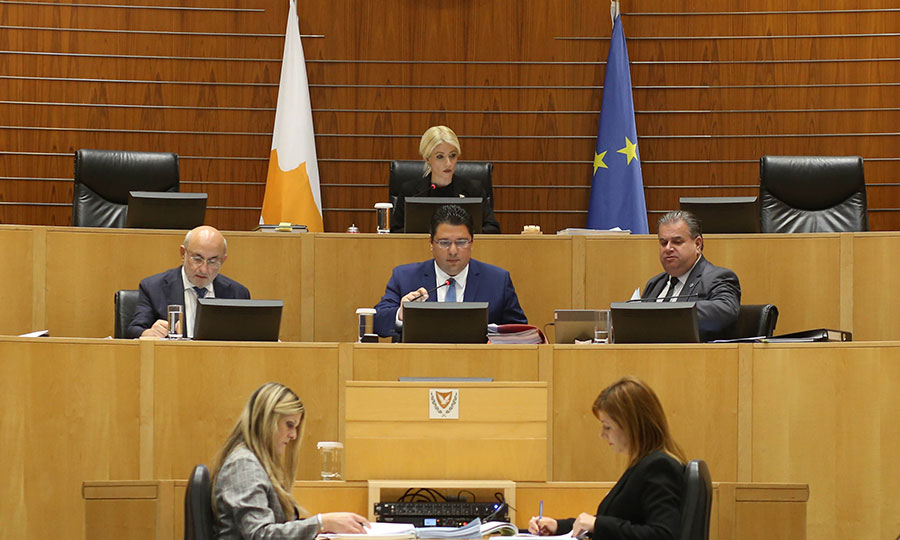
Newsroom
A dramatic session in parliament ended with the rejection of a contentious proposal by the opposition party AKEL, which aimed to impose an extraordinary 5% solidarity tax on bank interest income for 2024 and 2025.
According to a report by Kathimerini's Panayiotis Rougalas, the bill, intended to support vulnerable borrowers, was defeated in a razor-thin 25-25 vote, highlighting a political landscape marked by pressure, last-minute decisions, and party divisions.
The Cyprus Bankers’ Association issued a statement expressing willingness to cooperate and find ways to support struggling borrowers without resorting to additional taxes.
Presidential Warning and a Foreshadowed Veto
As the bill hung in the balance, President Nicos Christodoulides made his stance clear, warning of the dangers posed by what he called "nice-sounding" approaches with no proven benefits. Addressing the Pancyprian Association of Land and Building Development Entrepreneurs on Thursday — while the bill was being debated — he hinted strongly at a potential veto if it passed, a scenario the vote ultimately made unnecessary.
“We must be particularly wary of approaches that sound nice, but where they have been tried they have not brought any positive results,” Christodoulides said.

Votes Split, Key Abstentions Seal the Fate
The bill’s defeat was secured by crucial abstentions from Independent MP Andreas Themistocleous, DIPA’s Michael Yakoomi, and DIKO MPs Pavlos Mylonas and Christos Orphanides. AKEL, ELAM, EDEK, the Greens, DIKO’s Zacharias Koulias, and MP Kostis Efstathiou voted in favor, while DISY, the majority of DIKO, DIPA, and Independent MP Alexandra Attalidou voted against it.
The outcome underscored a notable split within party lines. Some MPs chose not to follow their party’s official stance, reflecting the high stakes and conflicting pressures surrounding the bill.
Behind-the-Scenes Pressure and Last-Minute Maneuvers
The session was anything but straightforward. Originally scheduled for 11 a.m., it was delayed to 12:20 p.m. amid intense behind-the-scenes negotiations. Even as MPs were arriving at the House, uncertainty loomed over whether the bill would make it to the floor.
Banks made a last-ditch effort to prevent the proposal’s passage. The Cyprus Bankers’ Association issued a statement expressing willingness to cooperate and find ways to support struggling borrowers without resorting to additional taxes. This move seemed designed to sway MPs who were still undecided.
Pressure also came from business circles and the Employers and Industrialists Federation (OEB). In a letter signed by its president Antonis Antoniou, the OEB warned that the tax could undermine Cyprus’s reputation as an investment destination and risk financial stability.
“Such a development potentially undermines the country's credibility as an investment destination or even triggers risks to the financial stability of the system,” the letter stated.

Political Fireworks and Rejected Reconsideration
During the debate, sparks flew between AKEL, DISY, and DIKO. AKEL accused their opponents of favoring banks over vulnerable borrowers, while those against the bill argued it was a dangerous and populist measure.
After the vote, AKEL MP George Loukaides requested the procedure be reopened, but his appeal was promptly denied by House President Anita Demetriou.
What’s Next?
Though the bill is dead for now, the issues it raised — bank profits, borrower protection, and economic fairness — are far from resolved. The session laid bare the ongoing struggle to balance financial stability with social support, a debate that’s sure to resurface.
For now, banks breathe a sigh of relief, but for vulnerable borrowers, the wait for support continues.































